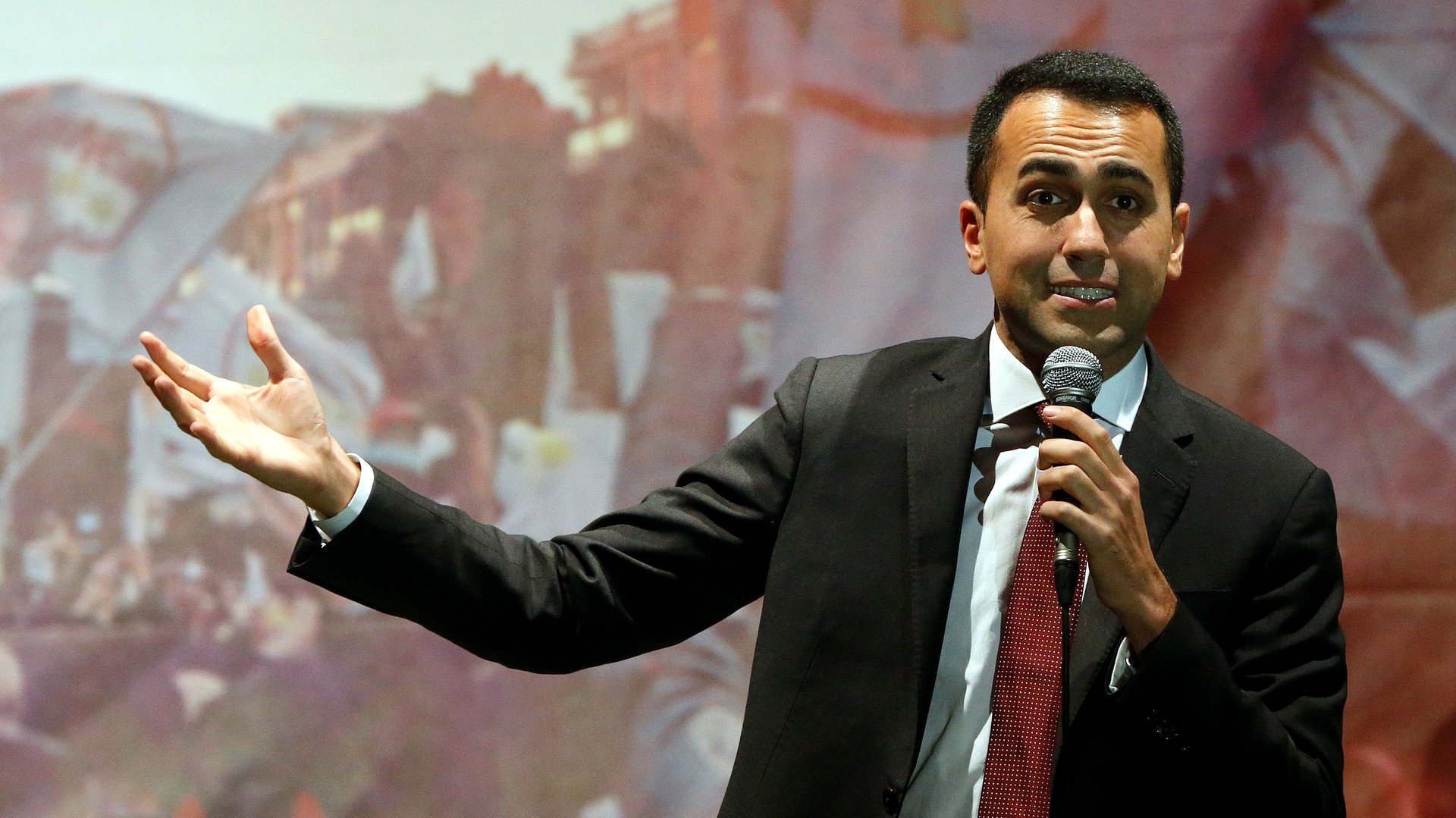Italy’s budget rebellion against the EU is scaring the markets
Italy settled on a new anti-establishment government made up of opposing political parties, the Five Star Movement and the League, after many months of commotion this year. Now the coalition is in the midst of its first big populist fight.


Italy settled on a new anti-establishment government made up of opposing political parties, the Five Star Movement and the League, after many months of commotion this year. Now the coalition is in the midst of its first big populist fight.
The government’s new proposed budget for 2019 leaves it with a deficit of 2.4% of GDP for the next three years, violating the European Union’s rules and sparking another bout of upheaval in markets.
Concerns that Italy would go on a massive spending spree it couldn’t afford and install a finance minister opposed to the euro rocked bond markets after the election. Now a plan to actually rebel against the EU by spending too much— and claims from a minister that Italy would be better off without the euro—sent yields on Italy’s 10-year bonds to 3.45%, the highest in four and a half years. Yields rise as bond prices fall, raising borrowing costs for the country.
Beyond the 2.4% deficit—triple the target of the previous government—few details on the budget are known. The spending plan, already delayed, is expected to be seen by parliament tomorrow (Oct. 3) and should include key information such as economic growth expectations and what measures will be implemented because of the deficit. A full draft is expected later this month.
EU rules say budget deficits must be smaller than 3% of GDP. Yet Italy’s still defies other rules in the EU’s Stability and Growth Pact.
The EU stipulates that governments must have a deficit that allows them to reduce their debt burden if it’s higher than 60% of GDP. Italy’s debt ratio is more than 130%, the highest after Greece in the euro area. Italy’s government claims more spending will increase growth and reduce the debt ratio. Later this month, the budget document has to be sent to the European Commission for comment. As it stands, traders are expecting the EU to reject the proposal, creating a clash between Brussels and Rome as Europe tries to increase integration.
Already other European finance ministers have called on Italy to get into line and observe the budget rules. Despite the market turmoil making Italy’s debt position worse with each day, Luigi Di Maio, a deputy prime minister who is leader of the anti-establishment Five Star Movement—said the government would not back down on the budget. “We are not turning back from the 2.4% target…We will not backtrack by a millimeter,” he said today.
The other deputy prime minister, Matteo Salvini, leader of right-wing League, said the EU should have to provide compensation to Italy because it is responsible for the widening spread between Italian and German bond yields. “We are ready to seek damages from those who want to harm Italy,” Salvini said. Jean-Claude Juncker, president of the European Commission had said “we have to do everything to avoid a new Greece, this time in Italy.” The comparison to Greece, which has just exited its third bailout, was unwelcome in Rome.
Even as Italy’s political leaders clarified that they have no intention of taking the nation out of the currency union, the turmoil is unlikely to end soon.
“The amateurish approach” by the coalition in dealing with the budget is likely to repeated when politicians need to get parliamentary approval by year’s end, Wolfango Piccoli at Teneo Intelligence wrote in a note. Piccoli cites different government ministers referring to different growth forecasts as just one example of the confusion.
Italy-watchers are still waiting to hear what’s happening with some of the government’s most expensive signature proposals, including a citizens’ basic income and flat tax. Italy’s populist leaders are determined to fulfill electoral spending promises to get the economy to grow. Since joining the euro zone, per capita GDP has fallen in the nation, pushing voters and politicians towards more radical change.